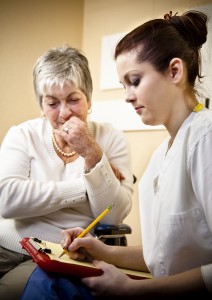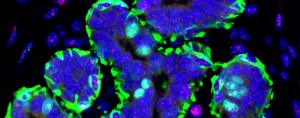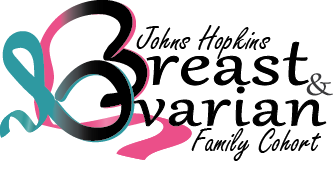
Weight Change in Breast Cancer Survivors Compared to Cancer-Free Women: A Prospective Study in Women at Familial Risk of Breast Cancer
This study prospectively examined weight gain in breast cancer survivors compared with cancer-free women. Women enrolled in our high-risk familial cohort who completed a questionnaire at time of enrollment and at least one follow-up questionnaire were included in this study. Overall, breast cancer survivors gained significantly more weight than cancer-free women. Furthermore, survivors treated with chemotherapy were found to be 2.1 times more likely to gain at least 11 pounds during follow-up compared to cancer-free women. Weight gain was even greater among survivors who took statins while undergoing chemotherapy treatment. This is the first study to demonstrate that weight gain is an important issue in breast cancer survivors with a familial risk and provides support for the development of weight gain interventions for young breast cancer survivors with a familial risk. To review the article and press coverage from this study go to our Publications page.
Early Changes in Predictive Markers of Cardiovascular Disease, Osteoporosis, Cognition and Quality of Life in Young Healthy Women After Prophylactic Removal of the Ovaries (BPSO Study)
The recommended standard of care for women at an increased risk for breast and ovarian cancer is to have the ovaries removed at a young age. Often, women who have this surgery suffer from severe menopausal symptoms and other potential side effects. The aim of this study was to evaluate and compare early changes in predictive markers of heart disease, bone density, and thought performance between women who elected to remove their ovaries and women who had their ovaries intact. We are analyzing the data with the anticipation of a manuscript in the upcoming months.

Breast Cancer Risk Perception and Healthy Lifestyle Behaviors
The goal of this study was to explore the relationship between perceived breast cancer risk and preventative behaviors of women with a family history of breast and/or ovarian cancer. Data collected from 767 cohort participant’s questionnaires was analyzed and indicated that the majority of women with a strong family history tended to overestimate their breast cancer risk, while a small percentage underestimated their breast cancer risk. This suggests the need for targeted education and interventions as well as research to understand the impact of these factors on quality of life, screening and prevention. No publication to date.
Fatty Acid Synthase (FAS) as a Potential Diagnostic Marker and Target for Prevention of Breast Cancer
Using collected breast biopsy pathology reports, medical records and tissue slides from over 500 women enrolled in the high-risk cohort we characterized benign breast lesions and subsequent development of breast cancer. Final analysis and publication of this work is pending.

Telomeres and Breast Cancer Risk and Progression
We continue to explore the relationship between telomere length/variability (telomeres are pieces on the ends of each chromosome that help to protect it from damage) as a potential disease predictor in both the development and progression of breast cancer. This research is ongoing.
Immune System, Inflammation and Breast Cancer Studies
The goal of these studies is to evaluate the relationship between the body’s immune system and the development and progression of breast cancer. These studies are ongoing.
Inflammation and Oxidative Stress in Breast Cancer Survivors (IOS Study)
The goal of this study is to test whether urinary markers for inflammation and oxidative stress are higher in breast cancer survivors treated with chemotherapy compared to women without cancer. Secondly, this study tests whether an increase in these markers may be related to greater weight gain in breast cancer survivors. Over 100 BOSS cohort members have taken part in this sub-study. Final analysis and publication of this work is pending.
